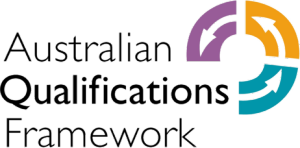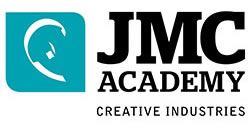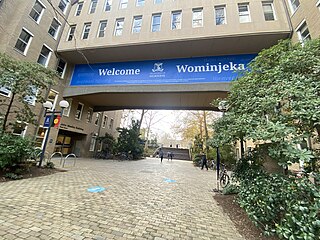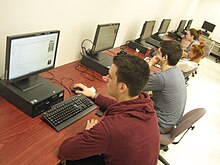
Education in Australia encompasses the sectors of early childhood education (preschool) and primary education, followed by secondary education, and finally tertiary education, which includes higher education and vocational education. Regulation and funding of education is primarily the responsibility of the States and territories; however, the Australian Government also plays a funding role.

Tertiary education fees in Australia are payable for courses at tertiary education institutions. Responsibility for fees in vocational education and training (VET) rests primarily with the state and territory governments, while fees policy in higher education is largely controlled by the Commonwealth Government.

Education in England is overseen by the Department for Education. Local government authorities are responsible for implementing policy for public education and state-funded schools at a local level. State-funded schools may be selective grammar schools or non-selective comprehensive schools. All state schools are subject to assessment and inspection by the government department Ofsted. England also has private schools and home education; legally, parents may choose to educate their children by any suitable means.

The Australian Qualifications Framework (AQF) specifies the standards for educational qualifications in Australia. It is administered nationally by the Australian Government's Department of Industry, with oversight from the States and Territories, through the Standing Council of Tertiary Education Skills and Employment. While the AQF specifies the standards, education and training organisations are authorised by accrediting authorities to issue a qualification.
English Australia, formerly known as the ELICOS Association of Australia, is an industry association of English language schools for students from overseas studying in Australia.

TAFE South Australia provides vocational education and training in the state of South Australia.
A registered training organisation (RTO), in Australia, is an organisation providing Vocational Education and Training (VET) courses to students, resulting in qualifications or statements of attainment that are recognised and accepted by industry and other educational institutions throughout Australia.

Tertiary education in Australia is formal education beyond high school in Australia, consisting of both government and private institutions and divided into two sectors; Higher Education and Vocational Education and Training (VET) provided by government-owned TAFEs & private Registered Training Organisations (RTO). Australian Qualifications Framework (AQF), the Australian national education policy, classifies tertiary qualification into 10 levels: level 1 to 4 vocational certificates ; level 5 & 6 undergraduate diploma and advanced diploma; level 6 associate degree; level 7 bachelor degree, level 8 bachelor honours degree & graduate certificates and graduate diplomas; level 9 for master's degree; and level 10 PhD. Most universities are government owned and mostly self-regulated. For other institutes there are two national regulators for tertiary education for registration, recognition and quality assurance of both the "provider institutes" as well as the "individual courses" provided by the providers. Tertiary Education Quality and Standards Agency (TEQSA) regulates institutes which provide education from level 5 or above. Australian Skills Quality Authority (ASQA) regulates institutes which provide education from level 1 to level 6.
Unaccredited institutions of higher education are colleges, trade schools, seminaries, and universities which do not have formal educational accreditation.
Martin College is an Australian vocational education and training (VET) provider with campuses in Brisbane, Melbourne and central Sydney. The college is also part of Study Group International, a worldwide specialist education company.
Higher education accreditation is a type of quality assurance process under which services and operations of post-secondary educational institutions or programs are evaluated to determine if applicable standards are met. If standards are met, accredited status is granted by the agency.
Student migration is the movement of students who study outside their country of birth or citizenship for a period of 12 months or more. During the period of globalization, the internationalisation of higher education increased dramatically and it has become a market driven activity. With the rapid rise of international education more and more students are seeking higher education in foreign countries and many international students now consider overseas study a stepping-stone to permanent residency within a country. The contributions that foreign students make to host nation economies, both culturally and financially has encouraged major players to implement further initiatives to facilitate the arrival and integration of overseas students, including substantial amendments to immigration and visa policies and procedures. Institutions are competing hard to attract international students at a time when immigration policies in leading destinations like the US and the UK are not enabling transition to work visas.
The Tertiary Education Quality and Standards Agency (TEQSA) is Australia's independent national quality assurance and regulatory agency for higher education.
Established in 1988, Macleay College is an Australian accredited higher education provider located in Chippendale, New South Wales. It offers two-year Bachelor degrees in advertising and media, digital media, journalism and business; and one-year Diploma courses in journalism, advertising and media, digital media, marketing and business management, with specialisations available in event management, entrepreneurship, real estate, public relations, travel and tourism or sports business.
Think Education is a higher education and vocational education and training provider in Australia, and is the primary trading name of Think Education. It delivers education through several campuses in Sydney, Brisbane, Melbourne and Adelaide, as well as through online study. Think Education is owned by Strategic Education Inc., and was previously owned by Laureate International Universities.

JMC Academy (JMC), founded in 1969, is an Australian multi-campus higher-education institution located in New South Wales, Victoria and Queensland.

Australia ranked third in top study abroad destinations with a total market value of over 5 billion AUD generated by international students in 2018. In 2023, 786,891 international students were enrolled in educational programs in Australia, which was 27% higher than the previous year. In 2024 this is forecasted to increase again by 18%. They come to gain a high-quality education, possibly immigrate, or to experience a different life. Each year, many new international students will enrol in Australian courses and add to the already significant international student body around the country.
Australian College of the Arts Pty Ltd (Collarts) is an Australian independent tertiary education provider, with four campuses in Melbourne, Victoria.

The United Kingdom is among the world's most popular destinations for international students, regularly placing within the top three countries for hosting international students alongside the United States and Australia. Data from the Higher Education Statistics Agency indicates that students from the three countries of India, China, and Nigeria together account for around 53% of all international students enrolled at higher education institutions in the UK.
The Whitsunday Anglican School (WAS) is an independent Anglican co-educational early learning, primary and secondary day and boarding school, located in Beaconsfield, a suburb in Mackay, Queensland, Australia.












